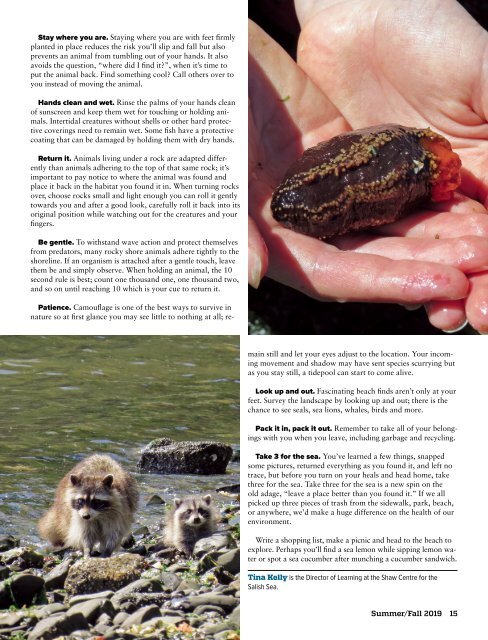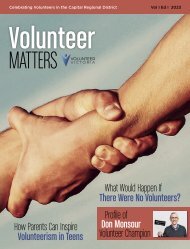Grand Summer Fall 2019
Zoom. FaceTime. Facebook Messenger. Skype. If you are like 38 per cent of grandparents surveyed for a new study, you use video chat to communicate and stay in touch with your grandkids. In this issue, you’ll find ways to stay connected with your grandchildren and the importance of kids having their grandparents as allies. Looking for some fun things to do with your grandkids? Look no further: on the following pages you’ll find 7 things to do with your grandkids, how to keep cool in regional parks and activities this summer at Swan Lake.
Zoom. FaceTime. Facebook Messenger. Skype. If you are like 38 per cent of grandparents surveyed for a new study, you use video chat to communicate and stay in touch with your grandkids. In this issue, you’ll find ways to stay connected with your grandchildren and the importance of kids having their grandparents as allies. Looking for some fun things to do with your grandkids? Look no further: on the following pages you’ll find 7 things to do with your grandkids, how to keep cool in regional parks and activities this summer at Swan Lake.
- No tags were found...
Create successful ePaper yourself
Turn your PDF publications into a flip-book with our unique Google optimized e-Paper software.
Stay where you are. Staying where you are with feet firmly<br />
planted in place reduces the risk you’ll slip and fall but also<br />
prevents an animal from tumbling out of your hands. It also<br />
avoids the question, “where did I find it?”, when it’s time to<br />
put the animal back. Find something cool? Call others over to<br />
you instead of moving the animal.<br />
Hands clean and wet. Rinse the palms of your hands clean<br />
of sunscreen and keep them wet for touching or holding animals.<br />
Intertidal creatures without shells or other hard protective<br />
coverings need to remain wet. Some fish have a protective<br />
coating that can be damaged by holding them with dry hands.<br />
Return it. Animals living under a rock are adapted differently<br />
than animals adhering to the top of that same rock; it’s<br />
important to pay notice to where the animal was found and<br />
place it back in the habitat you found it in. When turning rocks<br />
over, choose rocks small and light enough you can roll it gently<br />
towards you and after a good look, carefully roll it back into its<br />
original position while watching out for the creatures and your<br />
fingers.<br />
Be gentle. To withstand wave action and protect themselves<br />
from predators, many rocky shore animals adhere tightly to the<br />
shoreline. If an organism is attached after a gentle touch, leave<br />
them be and simply observe. When holding an animal, the 10<br />
second rule is best; count one thousand one, one thousand two,<br />
and so on until reaching 10 which is your cue to return it.<br />
Patience. Camouflage is one of the best ways to survive in<br />
nature so at first glance you may see little to nothing at all; remain<br />
still and let your eyes adjust to the location. Your incoming<br />
movement and shadow may have sent species scurrying but<br />
as you stay still, a tidepool can start to come alive.<br />
Look up and out. Fascinating beach finds aren’t only at your<br />
feet. Survey the landscape by looking up and out; there is the<br />
chance to see seals, sea lions, whales, birds and more.<br />
Pack it in, pack it out. Remember to take all of your belongings<br />
with you when you leave, including garbage and recycling.<br />
Take 3 for the sea. You’ve learned a few things, snapped<br />
some pictures, returned everything as you found it, and left no<br />
trace, but before you turn on your heals and head home, take<br />
three for the sea. Take three for the sea is a new spin on the<br />
old adage, “leave a place better than you found it.” If we all<br />
picked up three pieces of trash from the sidewalk, park, beach,<br />
or anywhere, we’d make a huge difference on the health of our<br />
environment.<br />
Write a shopping list, make a picnic and head to the beach to<br />
explore. Perhaps you’ll find a sea lemon while sipping lemon water<br />
or spot a sea cucumber after munching a cucumber sandwich.<br />
Tina Kelly is the Director of Learning at the Shaw Centre for the<br />
Salish Sea.<br />
IslandParent.ca<br />
<strong>Summer</strong>/<strong>Fall</strong> <strong>2019</strong> 15

















